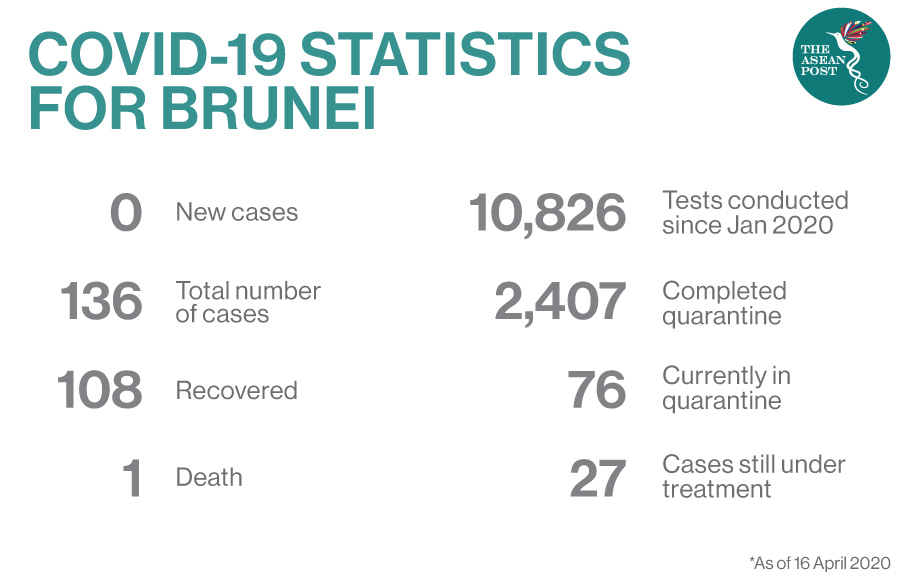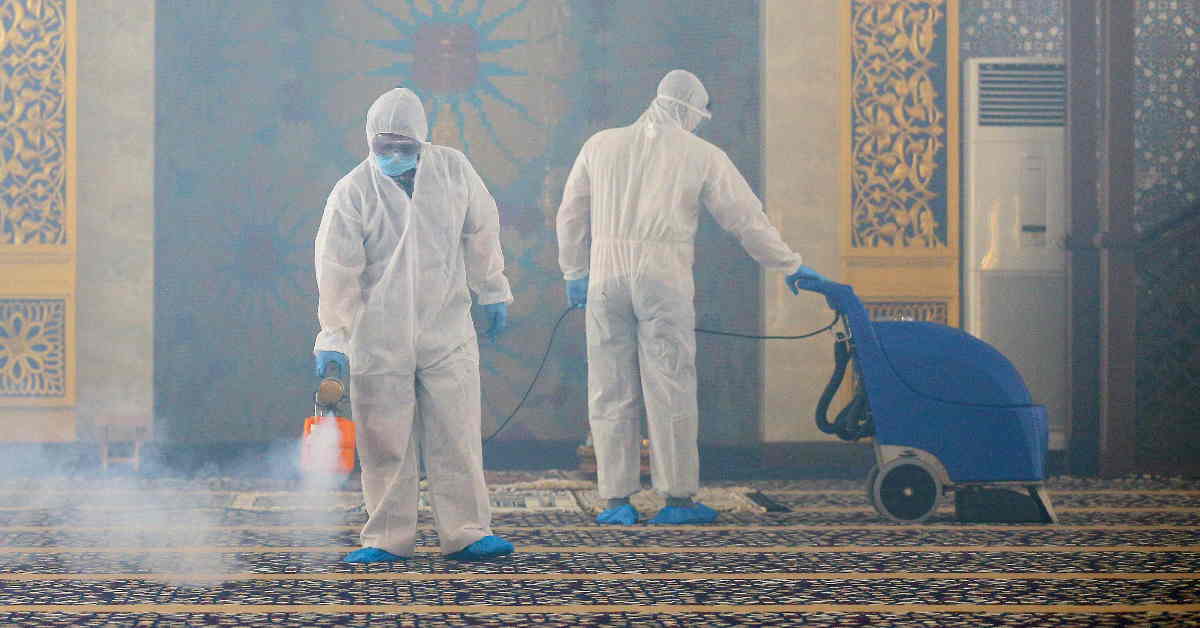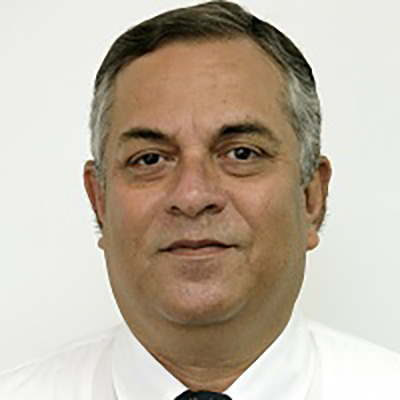At a time when first world countries like the United States (US) and European nations are struggling to cope with an unprecedented and escalating crisis triggered by the COVID-19 pandemic, Brunei has emerged as a shining example of the preparedness, concern and care for not only its citizens but all who are present in the country, including foreign nationals and tourists.
The first COVID-19 case was detected on 9 March, 2020, when a 53-year-old man tested positive for the coronavirus. Following that initial case, the number of new cases surged past the 135 mark but the robust action by the government of His Majesty, the Sultan of Brunei Darussalam, has prevented the further spread of the deadly virus. As of time of writing, Brunei has reported just one COVID-19 linked death. On 6 April, Health Minister Dr Hj Mohd Isham announced that for the last few days no new cases had been reported.
The reason Brunei did not opt for chaotic lockdowns as seen in other Southeast Asian countries is that the Ministry of Health (MoH) has been very transparent and did not try to suppress or hide any news cases. In fact, daily updates by the MoH have gone a long way in assuring the people of Brunei that everything is under control.
Dr Hj Mohd Isham said so far 82 people have recovered. He added that 25 out of the 135 cases detected (18.5 percent) were foreign nationals, some of whom were foreign workers. The government then conducted free random tests for migrant workers.

Brunei, like other countries, has taken necessary steps like a travel ban, restrictions on public gatherings, and asking people to work from home but the government has ensured that there has been no shortage of essential items.
Mosques and other places of worship have been closed and shopkeepers were asked to practice social distancing to prevent community transmission.
These restrictions were complemented by measures to ease any hardships faced by the people.
The first step in this direction was the opening of the BD$1.4 billion (US$983.6 million) Temburong bridge to provide an alternative route for people living in the remote Temburong district to reach the capital of Bandar Seri Begawan.
Welfare Of All
Previously, only a sea route connected the two districts and hundreds of Temburong residents, who work in other districts had to undertake a two-hour drive via the city of Limbang in East Malaysia and pass through four immigration checkpoints.
The early opening of the bridge ensures that commuting to the capital city is now easier and that the supply of essential goods to the residents of Temburong can be carried out without any disruptions.
To ensure the welfare of all, the MoH has issued a directive to all employers that they are not to deduct the salaries or annual leave of employees in self-isolation or quarantine. The employees are also not forced to obtain a medical certificate from a doctor.
Aware of the economic aspects of the COVID-19 pandemic, the government of Brunei has taken numerous measures to lessen the financial burden on the many economic sectors, which have been severely hit by the outbreak.
The government and banks have reached an agreement to defer the payment of loans for six months in four sectors – tourism, hospitality and events management, food and beverage and air transport. This deferment has also been extended to food and medical supplies importers to support the higher cash flow requirements to meet the surge in consumer demand.
Apart from this, except for third-party charges, all bank charges related to trade and payment transactions will also be waived for six months.
Being aware that the private sector will be hit very hard, the government has introduced a temporary measure that allows private sector workers to take paid sick leave once they have worked with their current employer for at least one month as part of efforts to prevent the spread of the COVID-19 virus.
Second, the government of Brunei announced that it will pay 25 percent of private sector employees’ salaries for three months to cushion the losses suffered by businesses. This includes a portion of the wages of Micro, Small & Medium Enterprises (MSME) workers who earn BD$1,500 (US$1,053) or less. The government has also waived the rent of small shops and food stalls.
Thanking His Majesty, the Sultan, Nurul Bazilah Haji Ali in her Reddit post said: "In the US, people have to fight for their right to free COVID-10 testing. Each test costs about US$1,331 (BD$1,904). Since January, Brunei has spent BD$2,850,000 (US$1,970,000) on just testing 1,500 people."
This does not include the money spent on the treatment of people who have been tested positive, she added.
Related articles:

